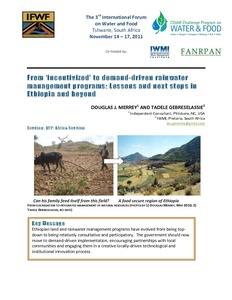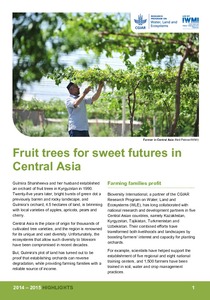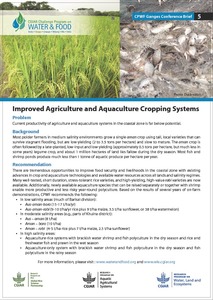Forest ecosystem services: can they pay our way out of deforestation?
This paper first provides a brief overview of what are and what represent forest ecosystem services. Then it considers the issues of price and valuation, and shows that valuation itself is not a solution but merely a tool. Considering then the reasons of the overall degradation of forest ecosystem services it shows that the main reasons tend to be fundamental: deforestation most often happens because it pays for local people - not so much because the institutionally created arrangements are perverse.
Forest operations for sustainable forestry in the tropics: proceedings of a symposium organised by IUFRO Subject group S3.05-00, Forest operations in the tropics at the XX IUFRO World Congress, 6 - 12 August 1995, Tampere, Finland.
Forest harvesting and transportation operations are essential components of sustainable forestry. Recognition of these important factors was consistent with the theme of the XX IUFRO World Congress, "Caring for the Forest: Research in a Changing World". The Congress was held in Tampere, Finland, in August 1995. As part of the proceedings a forum was provided for discussion of new techniques for planning, implementing and controlling forest operations in ways that promote sustainable management of tropical forests.
Future scenarios as an instrument for forest management: manual for training facilitators of future scenarios
The purpose of this manual is to help trainers in future scenario better facilitate training workshops for field officers such as forestry managers, extension officers and researchers who are keen to facilitate future scenarios in their forest management projects. Future scenarios are a diverse and flexible set of methods that can be used to help forest user groups and decision makers define clear unified objectives, identify opportunities or obstacles in the path to their management goals, or prepare strategies and action plans for alternate future situations.
Formation and recovery of secondary forests in India: a particular reference to western Ghats in South India
This paper analyses the underlying causes of secondary forest formation and recovery in India, particularly the Western Ghats region of south India, from precolonial times to the present. In the pre colonial period, hunter gatherers, shifting cultivators and settled cultivators were the dominant users of forest land, with some limited timber felling by local chieftains and kings. There was limited secondary forest formation following extractive activities by the communities and the State.





